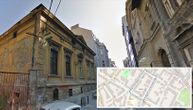New protected area in the heart of the city: Krunski Venac's charming villas from early 20th century
The area Krunski Venac includes Topolska, Petrogradska, Krunska, and Vojvode Dragomira streets and parts of Milesevska, Maksima Gorkog and Novopazarska streets
At the proposal of the Belgrade City Institute for the Protection of Cultural Monuments, the Government of the Republic of Serbia decided on May 20, 2021 to establish Krunski Venac and the Saint Sava Plateau as spatially cultural and historical units.
The area Krunski Venac includes Topolska, Petrogradska, Krunska, and Vojvode Dragomira streets and parts of Milesevska, Maksima Gorkoga and Novopazarska streets. Spatially, the cultural and historical unit Krunski Venac in Belgrade represents a segment of the wider city center, mostly residential, which was formed in urban terms in the first decades of the 20th century.
Until the beginning of the 20th century, this area was uninhabited and covered in meadows. According to its cultural-historical, architectural-urban and ambiental values, it belongs to the territory of the city with a chronological layering of the building heritage.
The unit and individual buildings have cultural, historical and architectural value as evidence of urban, economic and social development of the capital in the period between the two world wars, but also of a certain lifestyle of its inhabitants.
At the time when Krunski Venac was formed, it was described in the press as one of the most beautiful parts of Belgrade, but also the healthiest, built on an elevated position and sheltered from strong winds. In the inter-war period, new residential buildings of the villa type were built in the area, along with mass housing buildings for rent. These houses are still represented in the highest percentage and form an ambiental zone of medium to high quality housing.
This part of the Belgrade municipality of Vracar has remained and survived as a residential zone in the inter-war period, all the way until today, with a large number of family homes and smaller residential buildings. What still characterizes residents in Krunski Venac today is the recognition of the importance of unity and united action, in order to improve and preserve living conditions and values of the area to which they belong.
(Telegraf.rs)

